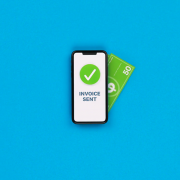Richard Branson, of Virgin fame. Red Balloon founder Naomi Simpson. Bill Gates of Microsoft. Oprah Winfrey of… well, you get the theme.
What do all of these people have in common?
It’s not their fashion sense. Or their preferred model of private jet.
These self-made entrepreneurs share traits, expressed as habits and behaviours, which contribute to their success.
Psychologists and self-development gurus have been trying to pin down these traits for decades. You’ve probably heard of books such as ‘The 7 Habits of Highly Effective People’, ‘How to Win Friends and Influence People’, ‘The Secret’, and ‘Rich Dad, Poor Dad’. Every commentator has their opinions on how to foster those characteristics. And therein lies the good news – these traits are learnable. By practicing on a regular basis, you can change your mindset so you think like a world-class businessperson.
Here are four key traits to get you started:
1. Visionary
Successful people have a strong ability to envision their ideal future, and plan how to get there. This gives them the ability to stay focused on their goals, and manage their resources accordingly.
Start by articulating what you want from your ideal life. This can take any form you like, from a vision board to a simple checklist. Then work out what you need to get there. Break it down from a major goal into minor ones, and then down to individual tasks needed to achieve those minor goals.
2. Resilient
Bounce back and learn from failure. Many household names weren’t at the top of their game until later in life. Others had multiple failed businesses before they found a winner. Being resilient means you have a greater chance of persevering on your chosen path.
You can’t control how you feel about setback or failure, but you can control how you act in response. When something negative happens to you, think about how you’re feeling. Giving a label to your emotion takes the edge off. Then try to put a positive spin on it by treating it as a learning experience. Pretend you’re someone else, giving advice to a close friend.
For example, if you’ve just lost a client at work, put labels on your feelings (rejection as a person, intellectual inferiority, etc.). Then try to work out the real reasons why the client left. If you can change your product or service to prevent further losses, do so.
3. Curious
Successful people are curious and eager to learn new things. Look at any of your role models – chances are, they never say they know it all. What they do say is what they want to read next, where they want to travel, and what gripping ideas and theories they’ve come across.
Most people are naturally curious. But if you don’t know what you want to explore, you may need to try a variety of different things before you find a new path or interest that really sparks your curiosity. Start with a travel brochure, a restaurant review book or a catalogue to your local adult learning centre. Commit to trying at least one new thing.
4. Social
Nobody achieves remarkable things completely on their own. Wealthy, fulfilled and happy people are social in two important ways.
First, they tend to build strong, tight-knit networks. They leverage those networks to take advantage of opportunities. This applies to business and career networks, but also to other networks, such as personal connections and community groups.
Second, they cooperate and collaborate with other people. The first step to fostering this ability is working out and acknowledging when you need (or at least would benefit from) help with a task or plan. The second step is saying yes and making the most of your newfound resource.
Shy, modest, introverted, independent and proud people can all have difficulty pushing themselves to be more social. One of the simplest techniques? Fake it ‘til you make it. Practise emulating the body language, habits, personal presentation and other behaviours of successful networkers that you know. Start with one thing – it doesn’t have to be big – and build your repertoire over time.
Feeling overwhelmed already? Just remember, none of these traits are genetic. They can be learned.
Start now.
This article was written by a third party.
Learn more tips for optimising your business
There are many tricks to the trade, and if you want to make the most of them to grow your business, jump into our email newsletter:










